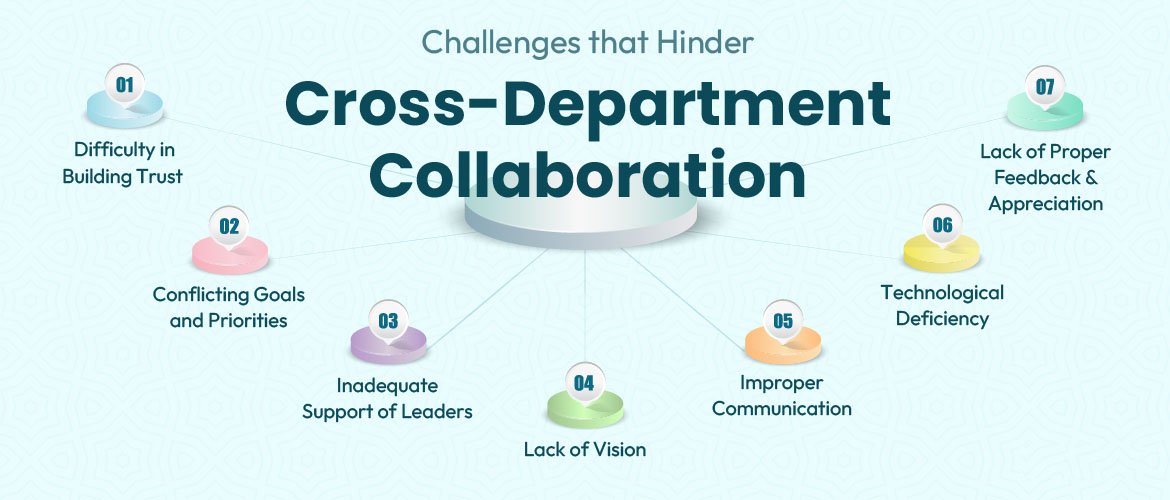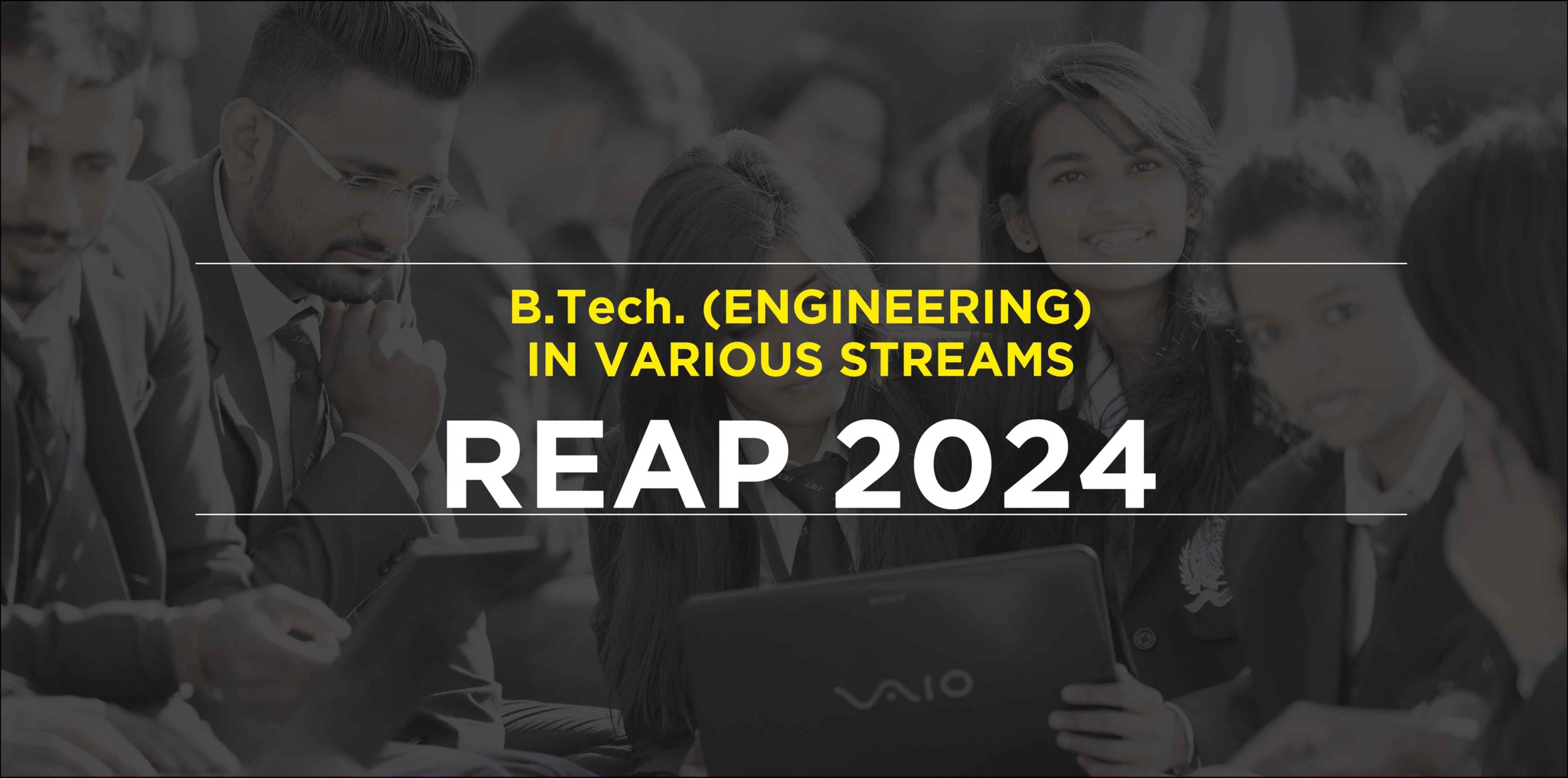Artificial Intelligence
&
Machine Learning
Quick links
Fees
Placement
Scholarship
Overview
The technology of Artificial Intelligence and Machine learning is at the forefront of developing intelligent solutions to real-life problems. As our technology-laden society increasingly relies on digital data, machine learning is crucial for most of our current and future applications. Engineers with AI expertise would be needed in all the crucial domains such as Healthcare, Industry 4.0, Finance, Agriculture, Security, Law, and Environment Management in the near future.
Jodhpur Institute of Engineering and Technology is the first AICTE-approved college in Rajasthan. It has a wide array of educational courses to offer students to shape this digital timeline’s future. It offers B. Tech in Future Artificial Intelligence and B. Tech in CSE (AI&ML) offered by JIET DAT.
Course Highlights
| Course level | Graduate |
|---|---|
| Duration | 4 Years |
| Average Salary Package | INR 7,00,000 |
| Highest Salary Package | INR 33,00,000 |
| Examination Type | Semester System |
| Program Eligibility | 10+2 or equivalent with a minimum of 45% marks |
| Top Recruiting Organizations | Infosys, TCS, Capgemini, Wipro, Accenture, Tekion,& many more |
Educational Objectives
In-depth understanding of the fundamentals of Artificial Intelligence and cultivating problem-solving ability and analytical skills.
To facilitate the students with machine learning skills and motivate them to solve complex real-world problems using predictive and cognitive modeling.
To train the students with good communication, interpersonal and leadership skills to enable them to fulfill social and professional responsibilities.
Expose students to various contemporary issues which will enable them to become ethical and responsible towards society and work for the betterment of mankind.
AI-ML Placements
Tekion
synopsys
Infosys
Celebal
Auriga IT
In Time Tec
Persistent Systems
Ingenuity Gaming Programmers.io
Vasyerp Solutions Private Limited
Top Recruiters
Celebal Technology
UltraTech
ISRO
DRDO
IIT Jodhpur
CADC
Tata motors
NBC
All India
CEERI pilani
About AI-ML
+ VISION
The department of Technology aims at being recognized globally as a pioneer in the field of emerging technologies and their applications to benefit society through innovation-based development.
+ MISSION
- To provide knowledge-based academic infrastructure to bridge the gap between academia and industry.
- To create a nurturing environment for lifelong learning through value-based education and enhance analytical skills through continuous improvement.
- To develop competent professionals with a visionary approach.
- To develop competent professionals in the emerging areas of artificial intelligence and data science.
+ PROGRAM EDUCATIONAL OBJECTIVES (PEOs)
- PEO1: In depth understanding of the fundamentals of Artificial Intelligence and Data Science and cultivate problem solving ability and analytical skills.
- PEO2: To facilitate the students with data analytics and machine learning skills and motivate them to solve complex real world problems using predictive and cognitive modelling.
- PEO3: To train the students with good communication, interpersonal and leadership skills to enable them to fulfill social and professional responsibilities.
- PEO4: Expose students to various contemporary issues which will enable them to become ethical and responsible towards society and work for the betterment of mankind
+ PROGRAM SPECIFIC OUTCOMES (PSO)
- PSO1: The graduates are proficient in fundamental principles and methods of Artificial Intelligence, Data Science and other related mathematical and scientific reasoning and are able to:
a) Apply fundamental concepts of advanced statistics, random variables, queuing theory, correlation and regression, and discrete mathematics.
b) Design, create & evaluate statistical models for decision making.
- PSO2: The graduates possess in-depth knowledge of various components of artificial intelligence and data science. The students have thorough understanding of:
a) Artificial Intelligence based systems and functionality of various units.
b) Role of data science in the benefit of society.
- PSO3: The graduates are competent in logic based programming languages and possess basic knowledge of several interactive data visualization software.
- PSO4: The graduates exhibit knowledge of best data mining practices and optimization techniques and can work as a team leader or member in developing expert systems.
- PSO5: The graduates possess the ability to explore emerging technologies and provide innovative solutions to real time problems within constraints such as financial, environmental, social and ethical.
** PROGRAM OUTCOMES (POs)**
- PO1: Engineering knowledge: Apply the knowledge of mathematics, science, engineering fundamentals, and their engineering specialization to the solution of complex engineering problems.
- PO2: Problem analysis: Identify, formulate, review research literature, and analyze complex engineering problems reaching substantiated conclusions using first principles of mathematics, natural sciences, and engineering sciences.
- PO3: Design/development of solutions: Design solutions for complex engineering problems and design system components or processes that meet the specified needs with appropriate consideration for public health and safety, as well as cultural, societal, and environmental considerations.
- PO4: Conduct investigations of complex problems: Use research-based knowledge and research methods including design of experiments, analysis and interpretation of data, and synthesis of the information to provide valid conclusions.
- PO5: Modern tool usage: Create, select, and apply appropriate techniques, resources, and modern engineering and IT tools, including prediction and modelling, to complex engineering activities with an understanding of their limitations.
- PO6: The engineer and society: Apply reasoning informed by the contextual knowledge to assess societal, health, safety, legal and cultural issues and the consequent responsibilities relevant to the professional engineering practice.
- PO7: Environment and sustainability: Understand the impact of professional engineering solutions in societal and environmental contexts, and demonstrate the knowledge of, and need for sustainable development.
- PO8: Ethics: Apply ethical principles and commit to professional ethics and responsibilities and norms of the engineering practice.
- PO9: Individual and team work: Function effectively as an individual, and as a member or leader in diverse teams, and in multidisciplinary settings.
- PO10: Communication: Communicate effectively on complex engineering activities with the engineering community and with society at large, such as, being able to comprehend and write effective reports and design documentation, make effective presentations, and give and receive clear instructions.
- PO11: Project management and finance: Demonstrate knowledge and understanding of the engineering and management principles and apply these to one’s own work, as a member and leader in a team, to manage projects in multidisciplinary environments.
- PO12: Life-long learning: Recognize the need for, and have the preparation and ability to engage in independent and life-long learning in the broadest context of technological change.
+ BRANCH BENEFITS
- Rajasthan's first AICTE approved college to offer Under Graduate course in Artificial Intelligence and Machine Learning.
- UpGrad and Cipher School as Knowledge Partner.
- Builds a solid foundation in futuristic technologies through an industry-oriented curriculum.
- Hands-on with industry projects and regular sessions by industry experts.
- Ability to design intelligent solutions in a variety of domains & business applications
- Hands-on experience with machine learning components, intelligent reasoning & various other AI tools & technologies.
- Gain expertise in advanced topics such as robotics, machine learning, deep learning, pattern recognition, computer vision, cognitive computing, human-computer interaction etc.
** + Career Path**
- ** Big Data Engineer **
Big Data Engineer are responsible for developing, constructing, testing, and maintaining frameworks like large-scale data processing systems and databases. In addition, they are trained to understand real-time data processing, offline data processing methods, and the implementation of large-scale machine learning.
- ** Business Intelligence Developer**
A business intelligence developer develops, deploy, and maintain Business Intelligence interfaces. These include query tools, data visualization and interactive dashboards, ad hoc reporting, and data modelling tools.
- ** Machine Learning Engineer**
Machine Learning Engineer focuses on researching, building and designing self-running Artificial Intelligence systems to automate predictive models. They develop and create the AI algorithms capable of learning and making predictions that define Machine Learning. Thus, we can say that they are responsible for creating programmes and algorithms that enable machines to take actions without being directed.
- ** Research Scientist**
They are experts in multiple AI disciplines, including applied mathematics, machine learning, deep learning, and computational statistics. In addition, they have extensive knowledge and experience in computer perception, graphical models, reinforcement learning, and natural language processing.
- ** AI Data Analyst**
AI Data Analyst builds analytical solutions and models by manipulating large data sets, integrating diverse data sources, performing ad-hoc analysis, developing reproducible analytical approaches to meet business requirements, and performing exploratory and targeted data analyses using descriptive statistics.
- ** Robotics Scientist**
Robotics scientists are skilled professionals who are responsible for the research, design and development of robotics systems. They ensure robots are cost-effective, reliable, and safe and make sure robots perform their functions properly.
- ** Artificial Intelligence Engineer **
An artificial intelligence engineer works with traditional machine learning techniques like natural language processing and neural networks to build models that power AI-based applications. The type of applications created by AI engineers includes Contextual advertising based on sentiment analysis, Language translation, Visual identification or perception.
- ** Machine Learning Architect **
Machine Learning Architect is responsible for designing and developing Machine Learning use cases using appropriate ML Algorithms and Tools. They transform Business Requirements into working real-life applications with Machine Learning modules and use cases.
- ** AI Architect**
The AI architect is like the chief data scientist, responsible for planning the implementation of solutions using the right technologies and evaluating the evolution of the architecture as the clients' needs change.
- ** Data and AI Consultant**
Data and AI Consultant translate business requirements into technical requirements. They craft high-level and detailed design documents, implement innovative solutions using the most recent technologies, and implement large data platform, business intelligence, advanced analytics, and multi-tier type solutions.
- ** IoT Architect**
An IoT architect sorts through all the data transmitted between networks from the various machines and gadgets used every day by millions of people. IoT architects help organizations fix business problems by designing IoT solutions. They are also responsible for creating and communicating the IoT concept, message, and architecture.
+ CURRICULUM
- Courses are skill-based and Industry Oriented
- Immense Domain Exposure
- Multidisciplinary Application Knowledge
- Major Thrust on Hands-on Training
- Involving stakeholders in the practices of curriculum design
- Courses for Holistic Development
- Latest technology skill development
JIET AIML I & II yr Syl & Sch
Expected Job Roles
Machine Learning Engineer
Data Scientist
Business Intelligence Developer
Research Scientist
Big Data Engineer/Architect
Software Engineer
Software Architect
Data Analyst
NLP Engineer
AI Engineer
Product Manager
Department Best Practices
Industry co-teaching
Exposure to open-source tools
Innovative teaching-learning pedagogy
Project-based learning
Skill enhancement via technical clubs
International teaching and research collaborations
Access to e-resources and research databases
Enhancing self-learning attitude via experiential learning
Advanced ICT tools for effectual knowledge transfer
Program Highlights
Flexi credit Courses
Six-month industry internship
Industry collaboration
Mentor-Mentee System and remedial teaching
Industrial visits, Workshops, Technical events, Guest lectures
Tinker Lab
Best in class infrastructural facilities
Specialized Lab in AI, ML and data Science
Creative Thinking, Critical Thinking, Design Thinking, Entrepreneurship courses
Prominent Faculty of AI-ML
The department has state of the art computing facilities as:
High-performance computing lab with Nvidia GPU
Data Analytics and Visualization lab
Deep Learning Lab with i7 machines and higher processing power
Computer Centre with machines in high configuration and licensed software required for teaching and research.
AI-ML Laboratories:
Python Programming Laboratory
Design and Analysis of Algorithms Laboratory
Database Management Systems Laboratory
Linux Programming Laboratory
Data Warehousing and Data Mining Laboratory
Artificial Intelligence Laboratory
Machine Learning Laboratory
Testimonials
Blogs
FAQs
1. Why JIET for B.Tech in Artificial Intelligence & Machine Learning?
JIET aims to provide tools for sharpening the skillsets of the students by providing appropriate educational excellence in problem solving and skills of analytics. This acts as the basis for helping in AI and Machine Learning.
Jodhpur Institute of Engineering and Technology educates students with the most updated technological tools. This helps them be readily learned and aware of the latest version of AI and ML occurrences.
It aims to create an environment of learning where students are intrigued to know more and strive towards constant betterment as individuals. It shapes them to be industry ready.
Students are encouraged in content-based learning by doing research and collaborative acts with the industry. It promotes the learners to have an ethical impact on society through their contribution to the field of research and development.
The design of the course is done in a way to help in the overall personality development of the student along with educational excellence.
Students are given broad exposure to a wide application fields such as computer vision, deep learning, pattern unrevealing, robotics, neural networks, etc, and several other tools to apply to the application design.
2. Why Choose Artificial Intelligence & Machine Learning?
The future of AI is vast like an ocean as there remains a broad domain for exploration. B.Tech in AI can help you analyze, comprehend and design the necessary changes and course of action towards the area needing amendments.
Expertise in AI and ML can help you identify the hidden statistical and computational terms and patterns necessary for designing the system of intelligence.
One can apply the learned set of knowledge and skills to develop innovative and unique solutions to the problem of algorithms in AI. This can eventually invite a bright and successful future for the learner.
With the correct use of tools and mechanisms of problem-solving AI can be applied to any field such as agriculture, education, and multi-disciplinary areas.
Learners can understand the impact of professional engineering and expertise in the knowledge that help them design solutions in societal and environmental contexts. Sustainable solutions are a priority for the future development of a fine world.
3. What is Artificial Intelligence?
Artificial intelligence is a extended branch of computer science concerned with building intelligent machines capable of performing tasks that typically require human intelligence.
4. What are the prerequisites for Artificial Intelligence?
Pre-requisites to learn Artificial Intelligence are:
- Basic knowledge of Statistics and modelling.
- Strong knowledge of Mathematics.
- Good command over programming languages.
- Strong data analytics skills.
- Ability to understand complex algorithms.
5. Why is Artificial Intelligence needed?
- Automates repetitive learning and discovery through data.
- Adds intelligence
- Adapts through progressive learning algorithms
- Analyzes more and deeper data
- Achieves incredible accuracy
- Gets the most out of data
6. What are the benefits of Using AI technology?
Nowadays, AI has become a part of our day-to-day lives. The scope for innovation and development in AI is enormous, and it will continue changing the world in diverse ways in the future.
- Automation
- Smart Decision Making
- Enhanced Customer Experience
- Medical Advances
- Research and Data Analysis
- Solving Complex Problems
- Business Continuity
- Managing Repetitive Tasks
- Minimizing Errors
- Increased Business Efficiency
7. What will be the career prospects after B Tech in AI?
The era of AI & ML is dawning upon us. After two decades of Google, social media and massive smartphone penetration, AI will be the next Big Thing in the technological revolution.
Career prospects after graduation in Futuristic Technologies are-
- Big Data Engineer
- Business Intelligence Developer
- Machine Learning Engineer
- Research Scientist
- AI Data Analyst
- Robotics Scientist
- Artificial Intelligence Engineer
- Machine Learning Architect
- AI Architect
- Data and AI Consultant
- IoT Architect
8. Which companies are hiring for Artificial Intelligence role?
Companies hiring for AI role are:
- Amazon
- Tesla
- Apple
- Microsoft
- Bosch
- Adobe
- Uber
- Walmart Labs
- JP Morgan Chase & Co.
- Accenture
- Wipro
9. What are some real-world examples of applications of Artificial Intelligence in the field?
- Google’s AI-Powered Predictions
- Ridesharing Apps Like Uber
- Commercial Flights Use an AI Autopilot
- Spam Filters
- Plagiarism Checkers
- Social Networking
- Search & Recommendations in Online Shopping
- Apples' Siri
- Google Assistant
- Amazon's Alexa
10. Does Artificial Intelligence need coding?
Yes, Artificial Intelligence require coding to implement mathematics and logic.
11. What are the top languages used to code in Artificial Intelligence?
The top languages used for coding in Artificial Intelligence are PROLOG, JAVA and PYTHON.
12. How are Artificial Intelligence and Machine Learning related?
Artificial intelligence is a technology that enables the machine to simulate human behaviour. Machine learning is a subset of AI which allows a machine to automatically learn from past data without programming explicitly.
13. What are some real-world examples of applications of machine learning in the field?
- Image Recognition
- Speech Recognition
- Traffic prediction
- Product recommendations
- Self-driving cars
- Email Spam and Malware Filtering
- Virtual Personal Assistant
- Online Fraud Detection
- Stock Market trading
- Medical Diagnosis
- Automatic Language Translation
14. How are “Deep Learning” and “Machine Learning” related?
Machine learning focuses on developing a computer program that accesses the data and uses it to learn from itself. Deep Learning is a subclass of Machine Learning where the artificial neural network, the recurrent neural network, comes in relation.





















